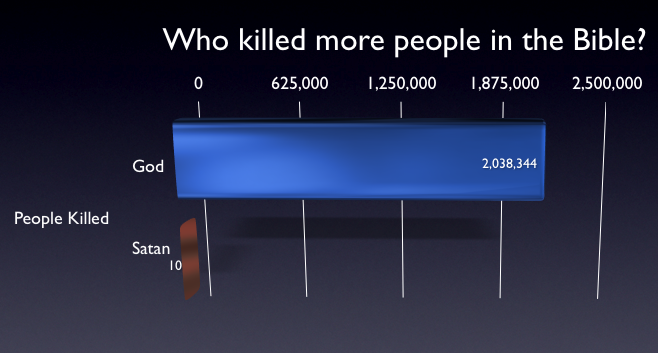 Physicist Albert Einstein asserted that we cannot solve problems from the same level of consciousness at which they were created. Perhaps that’s why I’m seeing an increase in requests for one-on-one Drama Queen Workshop consultations.
Physicist Albert Einstein asserted that we cannot solve problems from the same level of consciousness at which they were created. Perhaps that’s why I’m seeing an increase in requests for one-on-one Drama Queen Workshop consultations.
It appears that more of us are beginning to realize that we can’t solve a problem until we fully understand it. At the current level of consciousness, some things seem absolutely incomprehensible; so it seems logical, perhaps even natural, to come at it from another vantage point.
Unquestionably, problems look starkly different when you’re standing in the footlights of the world’s stage than when you’re sitting in the balcony. Frequently, the solutions to those problems can easily be spotted from up there, too. With that possibility in mind, we begin to look for the solutions together.
Even though each person has a different set of circumstances and concerns, I’ve noticed that one problem seems to arise more frequently than others: Disappointment. Many are disappointed by the situation they’re in, the person they’re with or the direction their lives have taken. They had a different vision and grander expectations. Therein lies the rub.

I think my “all the world’s a stage” mentor, Shakespeare, has given voice to a truth that a lot of us choose to ignore: “Expectation is the root of all heartache.” Instead, we follow directives to create expectations and visualize those expectations in great detail. They tell us to feel euphoric, as if we actually have received what we desire.
Some even tell us that if we don’t expect something, we won’t get it. But what is a disappointment but an unfulfilled expectation? And, oh—by the way, how do these folks explain surprises: those gifts that we never envisioned?
My unexpected trip last year to Egypt—on short notice, with all expenses paid, including a luxurious suite in a five-star hotel on the Nile River—comes to mind. My daughter, Maiysha, was headlining the “Sing Egyptian Woman” competition as part of a cultural exchange program for the U.S. Embassy in Cairo.
I accompanied as her publicist. The trip far exceeded my most vivid imagination!
Days after we returned, I had to cancel a long-planned, highly anticipated, prepaid trip to a conference in San Juan. So much for expectations.
What is the real “secret” to manifesting our desires?
 Whenever I mention my trip to Egypt, others ask: “How did you manifest that? I want to do that!”
Whenever I mention my trip to Egypt, others ask: “How did you manifest that? I want to do that!”
I tell them the same thing I wrote in my book on the Law of Attraction secrets no one wants to talk about: Manifesting depends more on “being” than “doing.” Your soul history plays a significant role, too. I can’t delve into that in a blog post; however, in my metaphysical memoir, I do cite a surprising, real-life example of how my soul’s ancient history impacted my 20th century life.
Chances are, you don’t know anyone who has never experienced a disappointment or a surprise. You probably don’t know people who have always received what they expected. I’m sure the same is true of those who tell us how critical it is to have expectations, so it’s difficult for me to believe that they are unaware that their claim is fallacious.
We want to hear that we control our lives and our experiences here, and there are those who are willing to tell us that we do–sometimes they even charge a fee to hear it. But the fact that so many of us pray for one outcome or another is evidence that humans don’t have total power over what manifests here. So why do some spiritual leaders and motivational/transformational speakers tell us that?
I’m sure their hearts’ desire is to empower and motivate us. But are you more likely to empower someone or set them up for disappointment by misleading them?
You can have everything you want. Really.
From up here in the Balcony of Life, it appears that Spirit said, “You can have everything you want.”
Before finding out if Spirit had said all It had to say, folks excitedly dashed off to “empower” people with the few words they heard. Word spread like wildfire. Apparently, no one asked, “Then why don’t I have it already?”
Short answer: Spirit sees us as souls. When It says “you,” Spirit isn’t talking about the physical body costume you are wearing. The body merely enables you to be visible on Earth’s stage now. It is not “you.”
Indisputably, you can have everything you want. In fact, you do have everything you want, Dear Soul—YOU, not your body. Whatever situation you’re in, whatever you manifest here, you—as an eternal soul—created it.
Understand that to the soul, a human lifetime is a bat-of-an-eyelash experience. Whether a prince or a prisoner, it’s just a role to the soul: a way to experience Life in a different way, learn some lessons, create or complete some karma.
While that’s fine and dandy for immortal souls that have written the scripts, their mortal bodies might be catching hell. That’s when my phone starts ringing and my e-mailbox blows up.
 Then begins the first step on the journey to find the source of the discomfort. It always starts with this question: “Why did I, as Soul, create this painful situation?”
Then begins the first step on the journey to find the source of the discomfort. It always starts with this question: “Why did I, as Soul, create this painful situation?”
Life isn’t random, and what happens here on Earth is not intended to hurt us. In fact, as immortal souls, it’s impossible to hurt us. Our only pain comes from our belief that we are mere mortals, disconnected from God.
That, in itself, creates a lot of uncertainty and insecurity that leaves us vulnerable to scary stories about an angry vindictive Being who lives far away in the sky, solves problems by killing humans, and has threatened to come down here to judge us, then sentence us to an eternity of torture.
It’s a not-so-Divine drama starring someone who’s certifiably satanic. He demands that we love and worship him, and we do.
Why, God, why?
You’ve heard that everything happens for a reason. Essentially, every drama in which we find ourselves was scripted purposefully. That’s why the most appropriate questions to ask when we want to move to another scene is, “Why did I, as Soul, create this horror flick? How does it serve my life’s purpose?”
If you dare to ask these questions, Spirit will answer. It’s the one thing I can say you can expect. Your answer may come through—wait for it—unexpected channels: a commercial on TV, something someone says in the line at the grocery store, or one of those “something told me” moments when you’re alone.
Stay open. Listen. Trust. If you want to, drop me a note and tell me what you heard—and how it made you feel to get a response. If you must visualize, see yourself surrounded by unconditionally loving souls who are always available, willing and able to support you through your toughest times.
In Part 2, we’ll go a little deeper and explore ways to eliminate disappointment from your life experience.


 Shocked? Appalled? Can’t understand why anyone would believe something so preposterous?
Shocked? Appalled? Can’t understand why anyone would believe something so preposterous?
